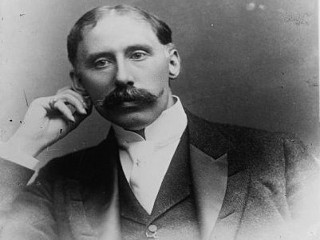
Frank Andrew Munsey biography
Date of birth : 1854-08-21
Date of death : 1925-12-22
Birthplace : Mercer, Maine, U.S.
Nationality : American
Category : Famous Figures
Last modified : 2011-04-27
Credited as : Publisher, pulp magazines,
Frank Andrew Munsey, American publisher, built a newspaper and magazine empire in the early 20th century.
Frank Munsey was born in Mercer, Maine, on Aug. 21, 1854, the son of poor but hardworking parents. A sober industrious boy, he went to work for the Western Union Telegraph Company. Steady and ambitious, he soon became manager of its office in Augusta, Maine. For obscure reasons, he settled upon publishing as his means to reach fortune, and in 1882 he went to New York City to publish Golden Argosy, a juvenile magazine. He helped Argosy by writing Horatio Alger-type tales, while buying, merging, and closing down other publishing properties, some distinguished, like Godey's and Peterson's.
Munsey struggled to succeed. He did not marry and did not develop any striking or individual side interests. He was dedicated to business during a period that witnessed the emergence of the popular magazine. In 1891, with Argosy producing less revenue than his plans permitted, he began Munsey's, aimed at a broad, general audience to which his competitors were selling magazines at 25 cents or more. Munsey's was less distinguished than most of these, but in 1893 Munsey made the magazine more salable by cutting his price to 10 cents.
When Munsey was refused distribution privileges by the American News Company, which feared the effect of his price on its control of the field, Munsey struck back by setting up his own distribution system. His brief, courageous battle broke the monopoly and established the popular magazine, making it available to a new and wider readership.
With his income now assured, Munsey began a drive that affected many journalistic careers. He turned his attention to newspapers—buying, consolidating, or closing numerous publications, including the New York Sun, the Baltimore Star, and the Philadelphia Times. Though many of his transactions were resented, Munsey insisted that unprofitable newspapers deserved to be killed and that consolidation was the one answer to this problem. However, his mounting power as a journalistic overlord gave no evidence of distinguished policies or technical innovations.
Munsey expanded his interests, assuming ownership of a chain of grocery stores and speculating in the stock market. His support of Theodore Roosevelt and the Progressive party in 1912 surprised some observers, who were of Munsey's generally conservative politics. However, Munsey's position only indicated his awareness that large industry had more to gain from government regulation than from freebooting enterprise, which could embarrass financiers through panics or recessions. More typical of Munsey's thought was his opposition to the League of Nations. He died on Dec. 22, 1925, leaving only his controversial empire.
















